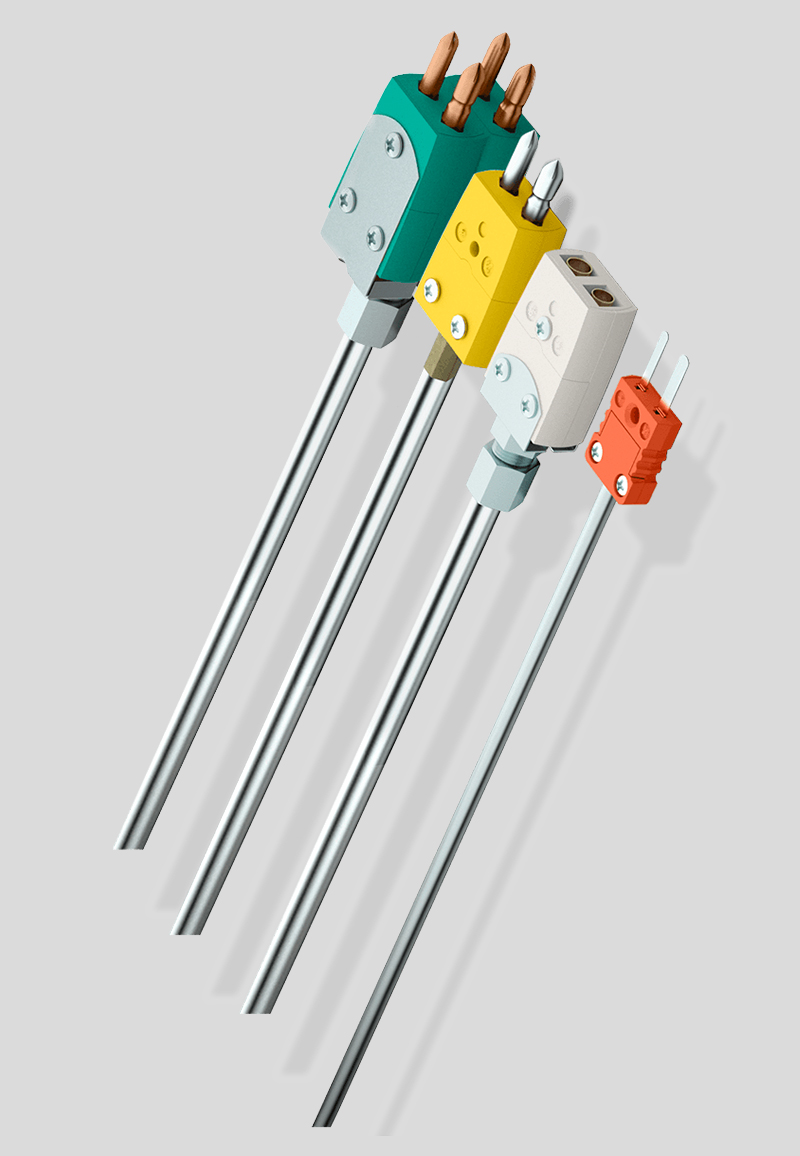Custom Built Thermocouples
When it comes to thermocouple manufacturers, Wilcon Industries is the standard by which all other thermocouple manufacturers are measured. We fabricate base metal, noble metal, refractory metal sheathed and bare wire thermocouples devices to meet a variety of needs.

Technical FAQs
Our experts will work with you to create a thermocouple designed to meet your needs.
Wilcon Industries Frequently Asked Questions
What is a thermocouple?
A thermocouple is a type of sensor that is used to measure or monitor temperature. Because of their relatively low cost and ability to measure wide ranges in temperature, using thermocouples in industrial control applications is common. Thermocouples are often used for measuring high temperatures where other types of sensors are unable to function.
How do Thermocouples work?
Thermocouples are manufactured from two electrical conductors using two dissimilar metal alloys joined together at one end that produce specific millivolt signal at a given temperature. This signal is then measured and interpreted by a thermocouple thermometer. The conductors are typically built into a cable with a heat-resistant sheath. At one end of the cable, the two conductors are joined together by welding. This end of the thermocouple (the hot junction) is thermally attached to the object to be measured. The other end (the cold, or reference junction) is connected to a temperature measurement system. The thermocouple gives you temperature readings at the hot junction point.
Are there different types of thermocouples?
Typically, Thermocouples are available in four different combinations of metals or calibrations: J, K, T and E. Each calibration has a different temperature range and environment. With each of the four combinations, the maximum temperature varies with the diameter of the wire used in the thermocouple.
What do I need to consider when selecting the thermocouple type?
Because thermocouples measure in wide temperature ranges they are widely used in many fields of industry. When selecting a thermocouple you must consider: temperature range; corrosive or chemical resistance of the sheath material; abrasion and vibration resistance and installation requirements (different equipment requires different compatibility considerations).
How do I know which junction type to choose?
Sheathed thermocouple probes are available with one of three junction types: grounded, ungrounded or exposed. At the tip of a grounded junction probe, the thermocouple wires are physically attached to the inside of the probe wall. This results in good heat transfer from the outside, through the probe wall to the thermocouple junction. In an ungrounded probe, the thermocouple junction is detached from the probe wall. The thermocouple in the exposed junction style protrudes out of the tip of the sheath and is exposed to the surrounding environment. This type offers the best response time, but is limited in use to noncorrosive and moisture free applications. See the illustrations at the right for a full discussion of junction types.
What is response time?
A time constant has been defined as the time required by a sensor to reach 63.2% of a step change in temperature under a specified set of conditions. Exposed junction thermocouples are the fastest responding. Also, the smaller the probe sheath diameter, the faster the response, but the maximum duration may be lower. Be aware, however, that sometimes the probe sheath cannot withstand the full temperature range of the thermocouple calibration.
